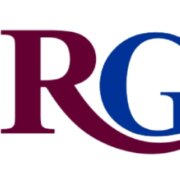Best Whistleblower & Qui Tam Lawyers in Gaborone
Share your needs with us, get contacted by law firms.
Free. Takes 2 min.
List of the best lawyers in Gaborone, Botswana
About Whistleblower & Qui Tam Law in Gaborone, Botswana
Whistleblower and Qui Tam laws are designed to encourage individuals to report illegal activities, fraud, and corruption by providing legal protections and potential rewards. In Gaborone, Botswana, these laws aim to combat fraud and misconduct, particularly in government and business sectors, and to ensure that whistleblowers are protected from retaliation. Understanding these laws can be crucial for individuals looking to expose wrongdoing while safeguarding their rights and well-being.
Why You May Need a Lawyer
Engaging a lawyer in Whistleblower & Qui Tam cases can provide significant benefits and protection. Common situations where legal help may be required include:
- Reporting fraud or corruption within a company or government entity.
- Facing retaliation or wrongful termination after blowing the whistle.
- Navigating the legal process and understanding complex regulations.
- Pursuing monetary rewards under Qui Tam provisions.
- Ensuring anonymity and confidentiality in sensitive cases.
- Defending against allegations of misconduct or false claims.
Local Laws Overview
In Gaborone, Botswana, several key laws and regulations govern Whistleblower & Qui Tam cases:
- The Whistleblowing Act: This act provides the legal framework for the protection of whistleblowers, including provisions about reporting procedures, confidentiality, and safeguards against retaliation.
- Anti-Corruption Investigations: The Directorate on Corruption and Economic Crime (DCEC) is the primary agency responsible for investigating whistleblower reports related to corruption and economic crime.
- Employment Laws: These laws provide additional protections for employees who report misconduct, ensuring they cannot be dismissed or otherwise penalized without just cause.
- Qui Tam Provisions: While Botswana's legal framework may not have specific Qui Tam provisions akin to the United States' False Claims Act, whistleblowers may still pursue legal actions for fraud and be entitled to certain rewards or compensations.
Frequently Asked Questions
What constitutes whistleblowing?
Whistleblowing involves reporting illegal activities, fraud, corruption, or unethical behavior within an organization to relevant authorities or the public.
Are whistleblowers protected by law in Botswana?
Yes, the Whistleblowing Act and other related laws provide protections to individuals who report wrongdoing, safeguarding them from retaliation.
What types of fraud can be reported?
Types of fraud that can be reported include financial fraud, corruption, embezzlement, bribery, and other unethical or illegal activities within organizations.
Can whistleblowers remain anonymous?
Yes, whistleblowers can choose to remain anonymous when reporting misconduct, and the law provides mechanisms to protect their identity.
What should I do if I face retaliation after blowing the whistle?
If you face retaliation, such as wrongful termination or harassment, it is crucial to seek legal counsel to protect your rights and potentially file a claim against your employer.
How can a lawyer help in a whistleblower case?
A lawyer can provide legal advice, help you understand your rights, ensure your anonymity, and represent you in legal proceedings to seek protection or compensation.
What is the Directorate on Corruption and Economic Crime (DCEC)?
The DCEC is the primary agency in Botswana responsible for investigating reports of corruption and economic crime, and it plays a key role in handling whistleblower cases.
Are there any rewards for whistleblowers in Botswana?
While Botswana may not have formal Qui Tam provisions like in some other countries, whistleblowers may still receive certain rewards or compensations, depending on the case's outcome.
How do I report wrongdoing if I suspect fraud or corruption?
You can report wrongdoing by contacting relevant authorities, such as the DCEC, or by seeking legal advice to understand the best course of action.
Can I file a whistleblower report against a government official?
Yes, whistleblower protections apply to reports against government officials, and such reports should be directed to the appropriate authorities, like the DCEC.
Additional Resources
For more information and assistance regarding Whistleblower & Qui Tam cases, consider reaching out to the following resources:
- Directorate on Corruption and Economic Crime (DCEC): The primary agency for investigating corruption and economic crime in Botswana.
- Botswana Labor Department: Provides information and assistance on employment rights and protections.
- Legal Practitioners in Gaborone: Engage local lawyers who specialize in whistleblower laws and employment rights.
- Human Rights Organizations: Various NGOs and organizations can provide support and advocacy for whistleblowers.
Next Steps
If you require legal assistance in Whistleblower & Qui Tam cases, consider taking the following steps:
- Consult a Lawyer: Reach out to legal practitioners in Gaborone who have expertise in whistleblower and employment law.
- Gather Evidence: Collect any documentation, records, or evidence that supports your case and can be used in legal proceedings.
- Report to Authorities: If applicable, report the wrongdoing to relevant authorities, such as the DCEC.
- Seek Protection: If you face retaliation, work with your lawyer to file for legal protections and pursue any necessary claims.
- Stay Informed: Keep yourself updated on your rights and any changes in local laws related to whistleblowing.
By following these steps, you can ensure that you are taking appropriate actions to protect your rights and effectively address any wrongdoing you have uncovered.
Lawzana helps you find the best lawyers and law firms in Gaborone through a curated and pre-screened list of qualified legal professionals. Our platform offers rankings and detailed profiles of attorneys and law firms, allowing you to compare based on practice areas, including Whistleblower & Qui Tam, experience, and client feedback.
Each profile includes a description of the firm's areas of practice, client reviews, team members and partners, year of establishment, spoken languages, office locations, contact information, social media presence, and any published articles or resources. Most firms on our platform speak English and are experienced in both local and international legal matters.
Get a quote from top-rated law firms in Gaborone, Botswana — quickly, securely, and without unnecessary hassle.
Disclaimer:
The information provided on this page is for general informational purposes only and does not constitute legal advice. While we strive to ensure the accuracy and relevance of the content, legal information may change over time, and interpretations of the law can vary. You should always consult with a qualified legal professional for advice specific to your situation.
We disclaim all liability for actions taken or not taken based on the content of this page. If you believe any information is incorrect or outdated, please contact us, and we will review and update it where appropriate.
















